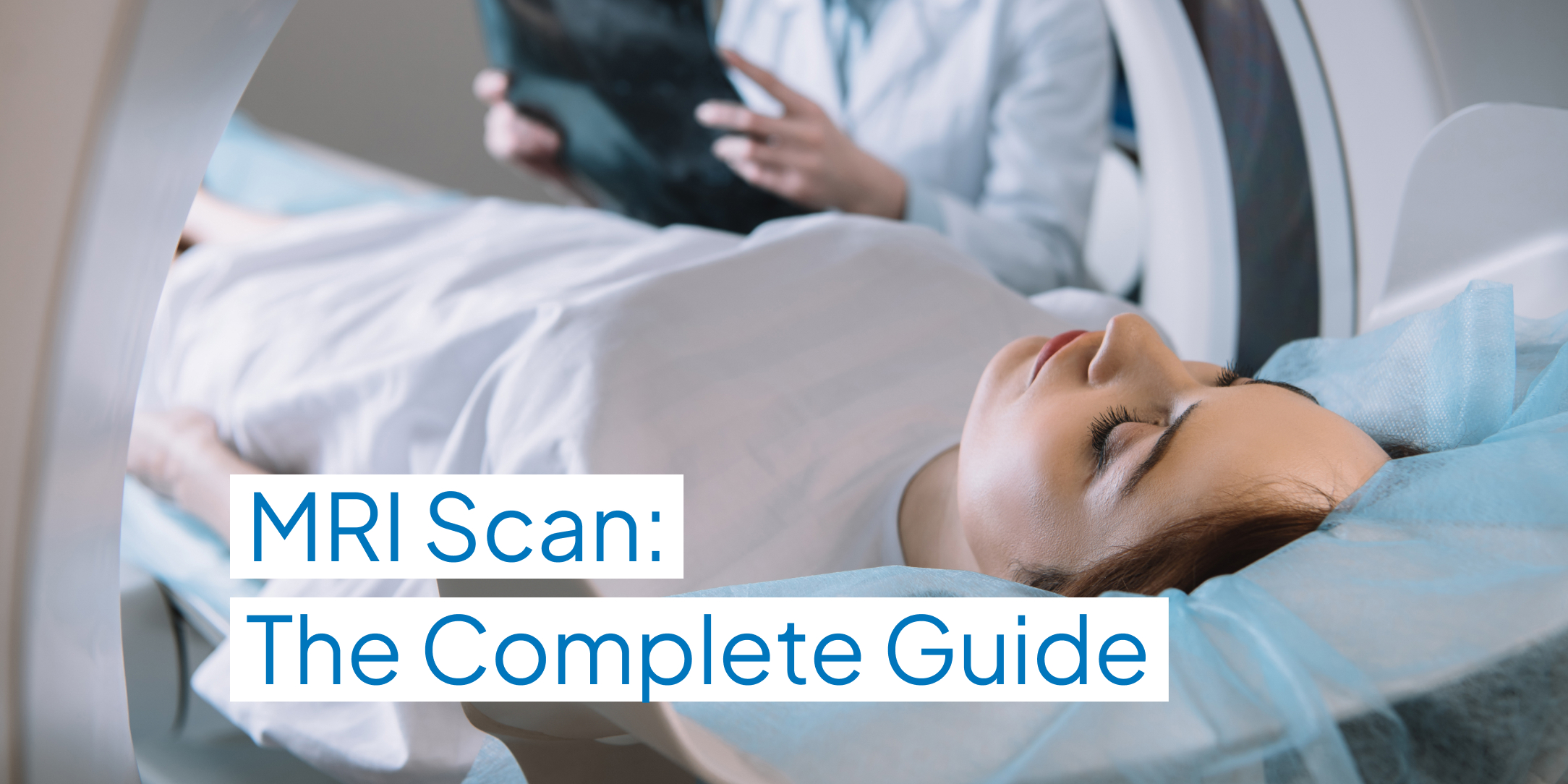What is a DEXA Scan?
A DEXA scan (short for dual-energy X-ray absorptiometry) is a quick and painless test that measures bone density. It is often used to diagnose conditions like osteoporosis and assess the risk of fractures. The scan uses low levels of X-rays to create detailed images of your bones, typically focusing on areas like the spine, hips, and wrists, where fractures are most likely to occur.
Why is Bone Density Important for Overall Health?
Bone density is a key indicator of bone strength. Healthy bones provide structural support for your body and protect vital organs. Low bone density can increase the risk of fractures, which can lead to long-term health problems and reduced mobility. Monitoring bone density helps in early detection of conditions that weaken bones, allowing for timely intervention.
The Role of DEXA Scans in Preventative Healthcare
DEXA scans are invaluable for early detection and prevention of bone-related conditions. By identifying problems early, you can take steps to strengthen your bones and reduce the risk of fractures.
Conditions Diagnosed Through DEXA Scans

DEXA (Dual-Energy X-ray Absorptiometry) scans are most commonly used to diagnose and assess bone health, particularly in relation to:
1.Osteoporosis: A condition where bones become fragile, porous, and more susceptible to fractures. DEXA scans provide a clear picture of bone mineral density (BMD), which is essential for diagnosing osteoporosis, especially in individuals at risk, such as postmenopausal women or older adults.
2.Osteopenia: A precursor to osteoporosis, osteopenia refers to lower-than-normal bone density. While not as severe as osteoporosis, osteopenia increases the risk of developing osteoporosis over time. DEXA scans help detect early bone density loss, enabling preventive measures or treatments to be implemented before full-blown osteoporosis develops.
3.Fracture Risk Assessment: By measuring bone density, DEXA scans can help estimate an individual's risk of fractures, even in the absence of any symptoms. This predictive capability is particularly useful in determining which patients may benefit from interventions like medication or lifestyle changes to reduce their risk of fractures, particularly in areas like the hip, spine, and wrist.
Who Should Consider a Bone Density Scan?

Risk Factors for Bone Density Loss
Certain factors make some people more prone to bone density loss, including:
- Ageing (bone density naturally decreases as you get older)
- Menopause, due to reduced oestrogen levels
- Family history of osteoporosis or fractures
- Lifestyle habits such as smoking, excessive alcohol consumption, or lack of physical activity
- Chronic conditions like rheumatoid arthritis, thyroid disorders, or coeliac disease
- Long-term use of medications such as steroids
Age Groups and Demographics Most at Risk
- Postmenopausal women: The drop in oestrogen levels increases the risk of bone loss.
- Older adults: Both men and women over 65 are advised to consider screening.
-
People with a family history of osteoporosis or frequent fractures.
Health Conditions or Lifestyle Factors Requiring Regular Monitoring
If you have any of the following, you may benefit from regular DEXA scans:
- Chronic illnesses affecting bone health
- A history of fractures
- Long-term medication use that affects bone density
- Low body weight or a history of eating disorders
How Often Should You Get a DEXA Scan?
General Guidelines for Scan Frequency
For most people, a DEXA scan every 2-3 years is sufficient. However, this depends on your health, age, and risk factors.
Recommendations Based on Age, Health History, and Risk Factors
- Postmenopausal women and men over 65: Routine scans every 2-3 years.
- Younger individuals with risk factors: Frequency will depend on your doctor’s advice.
-
After starting treatment for osteoporosis: Your doctor may recommend a follow-up scan within a year to monitor progress.
When to Speak to Your Doctor About a DEXA Scan

Symptoms That May Warrant a Scan
Consider discussing a scan with your GP if you experience:
1.Unexplained back pain
2.Loss of height over time
3.A fracture after a minor fall or injury
Family History or Genetic Predispositions to Watch Out For
If osteoporosis runs in your family or you’ve inherited conditions affecting bone health, speak to your doctor about early screening.
NHS vs. Private DEXA Scan Schedules
While the NHS provides DEXA scans for those with significant risk factors, the waiting times can be long. Private scans offer quicker access, often within days, and may allow for more frequent monitoring based on your needs.
Benefits of Private DEXA Scans in the UK
1.Speed: Private scans are often quicker to arrange than NHS scans.
2.Flexibility: You can choose when and where to have your scan.
3.Personalised care: Private clinics may offer more tailored advice and follow-ups.
Lifestyle Tips to Improve Bone Health

Diet, Exercise, and Supplements to Maintain Healthy Bones
- Eat calcium-rich foods like leafy greens, tofu, and fortified plant-based milks.
- Boost vitamin D levels with sunlight exposure and supplements.
-
Incorporate weight-bearing exercises, such as walking, jogging, or strength training.
Avoiding Habits That Contribute to Bone Density Loss
- Limit alcohol and caffeine.
- Quit smoking.
- Maintain a healthy weight.
Importance of Regular Monitoring and Scans
Even with a healthy lifestyle, regular DEXA scans are essential to tracking bone health and adapting prevention strategies.
Conclusion
Taking care of your bones is a lifelong commitment. Whether it’s through regular scans, a healthy lifestyle, or early treatment, every step you take now can lead to stronger, healthier bones in the future.
DEXA scans provide a quick, accurate, and non-invasive way to assess your bone density, diagnose conditions like osteoporosis, and help prevent future fractures. By identifying potential risks early, you can take proactive steps to strengthen your bones through diet, exercise, and timely medical intervention.
Don't wait until it's too late—ensure your bone health is a priority. Book a DEXA scan today with GetScanned and gain peace of mind with comprehensive, expert-led assessments tailored to your needs. Conveniently available at locations across the UK, including London, Manchester, Birmingham, and more.
Schedule Your DEXA Scan Now at GetScanned and take the first step toward healthier bones!
GetScanned Today
FAQ
1. What parts of the body are scanned during a DEXA scan?
Usually, the lower spine and hips are scanned. Sometimes, the forearm may also be included.any private health insurance plans cover DEXA scans for bone density, particularly if prescribed for osteoporosis diagnosis. Check with your provider to confirm coverage, co-pays, or out-of-pocket costs.
2. What does a DEXA scan measure?
The scan measures bone mineral density (BMD), comparing it to the average for a healthy young adult of your gender.
3. What should I do if my DEXA scan results show low bone density?
Your doctor may recommend lifestyle changes, medications, or supplements to help strengthen your bones.
4. Can I have a DEXA scan during pregnancy?
DEXA scans are generally not recommended during pregnancy due to the small amount of radiation involved.
.png)



